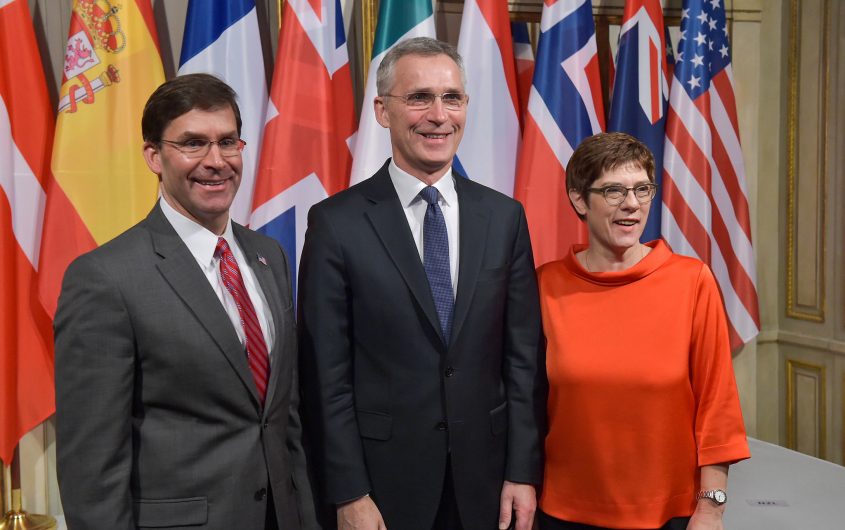AGI News
Jeff Rathke on European Defense Agenda with Smaller U.S. Footprint in DefenseNews

NATO via Flickr

Jeff Rathke
President of AGI
Jeffrey Rathke is the President of the American-German Institute in Washington, DC.
Prior to joining AGI, Jeff was a senior fellow and deputy director of the Europe Program at CSIS, where his work focused on transatlantic relations and U.S. security and defense policy. Jeff joined CSIS in 2015 from the State Department, after a 24-year career as a Foreign Service Officer, dedicated primarily to U.S. relations with Europe. He was director of the State Department Press Office from 2014 to 2015, briefing the State Department press corps and managing the Department's engagement with U.S. print and electronic media. Jeff led the political section of the U.S. Embassy in Kuala Lumpur from 2011 to 2014. Prior to that, he was deputy chief of staff to the NATO Secretary General in Brussels. He also served in Berlin as minister-counselor for political affairs (2006–2009), his second tour of duty in Germany. His Washington assignments have included deputy director of the Office of European Security and Political Affairs and duty officer in the White House Situation Room and State Department Operations Center.
Mr. Rathke was a Weinberg Fellow at Princeton University (2003–2004), winning the Master’s in Public Policy Prize. He also served at U.S. Embassies in Dublin, Moscow, and Riga, which he helped open after the collapse of the Soviet Union. Mr. Rathke has been awarded national honors by Estonia, Latvia, and Lithuania, as well as several State Department awards. He holds an MPP degree from Princeton University and BA and BS degrees from Cornell University. He speaks German, Russian, and Latvian.
__
AGI President Jeff Rathke discusses German defense minister Annegret Kramp-Karrenbauer’s call for the European Union to prepare for the possibility of a U.S. disengagement from European security–regardless of election outcome:
“For now, the German Defence Ministry’s apparent trajectory of planning for a future where U.S. commitment may be iffy at best can bring more good than harm, he argued.
Fears of an increasingly belligerent Russia and Trump’s overt questioning of international alliances as key to keeping the peace have driven a wave of increased defense spending on the continent in recent years. ‘The things that Europe needs to do for its own security are precisely the things that improve the trans-Atlantic security relationship,’ Rathke said.”
This article was originally published by DefenseNews on July 16, 2020.








